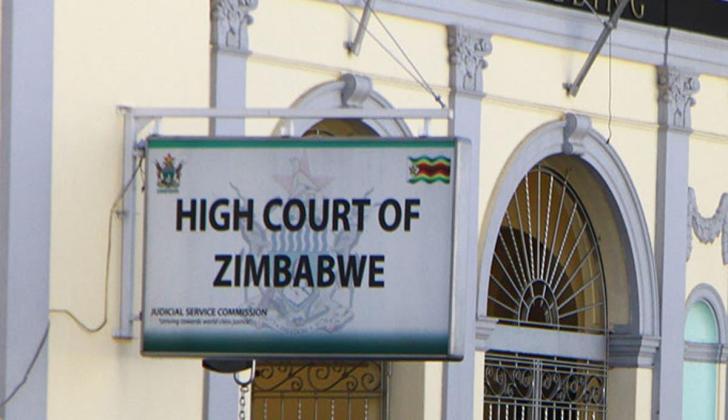News / National
High Court acquits businessman of US$1 million fraud
2 hrs ago | Views

The High Court has overturned the conviction of Spartan Security (Pvt) Ltd and its director, businessman Luka Ignatius Fabris, in a high-profile fraud case involving US$1 million. In a ruling delivered by Justices Happias Zhou and Benjamin Chikowero, the court acquitted both Fabris and his company, quashing the conviction handed down by the lower court.
"The appeal is allowed. The conviction is quashed, and the sentence has been set aside. The first accused, Spartan Security, is found not guilty and acquitted, and so is the second accused, Lucas Fabris," the High Court judges stated in their order.
The case stemmed from allegations that Fabris and his company defrauded Leigh Ann Patricia Rudland, a 53-year-old investor, in a failed cattle ranching business deal. The State had charged Fabris and Spartan Security with defrauding Rudland of Z$4.8 million (approximately US$1 million) in 2019. According to the prosecution, Fabris, acting on behalf of his company, persuaded Rudland to invest in a lucrative cattle ranching venture, promising her monthly returns of 2% on her total investment. However, the business never materialized, and Rudland allegedly received far less than she was promised.
Rudland transferred Z$4.8 million, which the two parties had agreed was equivalent to US$1 million at the prevailing exchange rate. However, after receiving a total of US$540,000 in returns, Rudland claimed that Fabris stopped making payments, prompting her to take legal action.
In his defense, Fabris denied any fraudulent intentions, explaining that the agreement between himself and Rudland was a verbal arrangement to convert the Z$4.8 million electronic transfer into cash. He argued that the deal was based on trust, and that the value of the money had decreased significantly due to inflation, which affected the remaining funds. Fabris further contended that Rudland had agreed to collect her funds in batches and that by the time the final batch was collected, the cash had lost value.
Fabris maintained that there was no fraudulent conduct involved, and that the dispute centered around the difference in value caused by Zimbabwe's economic instability. He denied any obligation to compensate Rudland for the inflation-induced loss, as it would amount to unjust enrichment.
In the initial ruling, Harare Magistrate Feresi Chakanyuka had sentenced Spartan Security to a fine of US$300, while Fabris was also fined US$300 and given a wholly suspended 12-month sentence, contingent on him not committing a similar offense within five years. Magistrate Chakanyuka also ordered Fabris to restitute the outstanding balance of US$460,000 to Rudland by July 31.
However, following the appeal, the High Court found that the lower court had erred in its conviction. The judges noted that the evidence presented did not support the charges of fraud, leading to the acquittal of both Fabris and Spartan Security.
The legal teams representing Rudland, including Joseph Nemaisa and Tawanda Zhuwarara, had argued that the deal was fraudulent from the outset. However, the High Court's ruling now clears Fabris and his company of any wrongdoing, marking a significant development in the case.
"The appeal is allowed. The conviction is quashed, and the sentence has been set aside. The first accused, Spartan Security, is found not guilty and acquitted, and so is the second accused, Lucas Fabris," the High Court judges stated in their order.
The case stemmed from allegations that Fabris and his company defrauded Leigh Ann Patricia Rudland, a 53-year-old investor, in a failed cattle ranching business deal. The State had charged Fabris and Spartan Security with defrauding Rudland of Z$4.8 million (approximately US$1 million) in 2019. According to the prosecution, Fabris, acting on behalf of his company, persuaded Rudland to invest in a lucrative cattle ranching venture, promising her monthly returns of 2% on her total investment. However, the business never materialized, and Rudland allegedly received far less than she was promised.
Rudland transferred Z$4.8 million, which the two parties had agreed was equivalent to US$1 million at the prevailing exchange rate. However, after receiving a total of US$540,000 in returns, Rudland claimed that Fabris stopped making payments, prompting her to take legal action.
In his defense, Fabris denied any fraudulent intentions, explaining that the agreement between himself and Rudland was a verbal arrangement to convert the Z$4.8 million electronic transfer into cash. He argued that the deal was based on trust, and that the value of the money had decreased significantly due to inflation, which affected the remaining funds. Fabris further contended that Rudland had agreed to collect her funds in batches and that by the time the final batch was collected, the cash had lost value.
In the initial ruling, Harare Magistrate Feresi Chakanyuka had sentenced Spartan Security to a fine of US$300, while Fabris was also fined US$300 and given a wholly suspended 12-month sentence, contingent on him not committing a similar offense within five years. Magistrate Chakanyuka also ordered Fabris to restitute the outstanding balance of US$460,000 to Rudland by July 31.
However, following the appeal, the High Court found that the lower court had erred in its conviction. The judges noted that the evidence presented did not support the charges of fraud, leading to the acquittal of both Fabris and Spartan Security.
The legal teams representing Rudland, including Joseph Nemaisa and Tawanda Zhuwarara, had argued that the deal was fraudulent from the outset. However, the High Court's ruling now clears Fabris and his company of any wrongdoing, marking a significant development in the case.
Source - NewZimbabwe



































